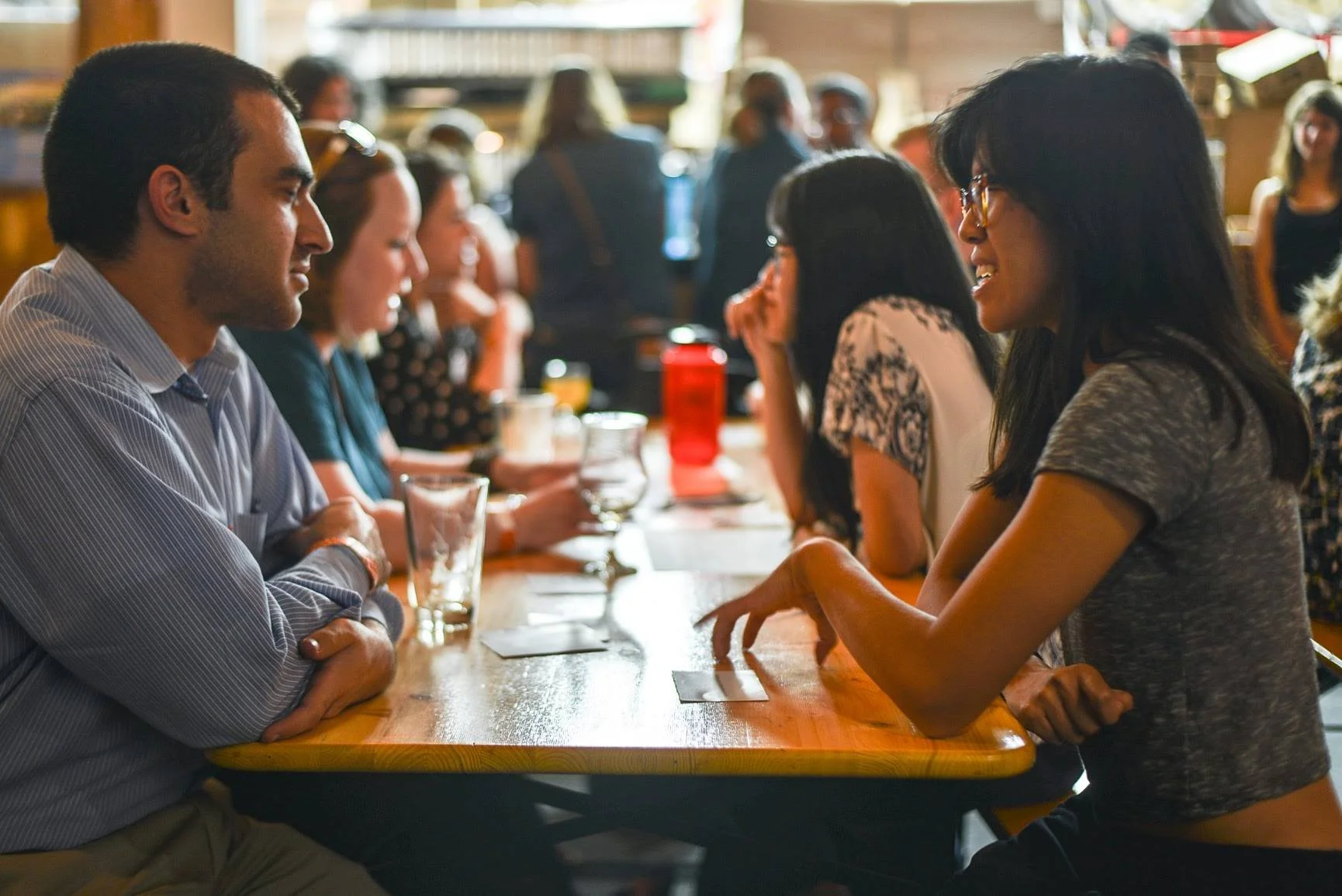WHERE DO WE FIND FRIENDSHIP? Lessons from Lord of the Rings
The doors of Durin from Fellowship of the Ring. The inscription reads “Say “friend” and enter"
It’s September 22, the first day of astronomical autumn. For the nerds in the room, it is also the birthday of both Bilbo and Frodo Baggins. I have been in love with Lord of the Rings since I was 14 years old (I’m 35 now), and I re-read the series annually.
This year, the motifs of difficult times, expanding oppression, and scary enemies feel all too close home. But what really stands out is the antidote Tolkien offers to despair: friendship.
He offers us a view of friendship that can differ from our cultural assumptions which often emphasize being similar, having similar tastes, and having surface level fun. In this fantasy epic, friendship forms under adverse conditions between unexpected people who share commitment to something bigger than themselves.
Just in case one of you, dear readers, is not familiar with Lord of the Rings. It is one of the original fantasy epics and you can read a synopsis of the plot here.
At the beginning of the story, when Frodo tries to leave on his own and questions what and who he can trust, his friend, Merry, offers:
"You can trust us to stick to you through thick and thin- to the bitter end. And you can trust us to keep any secret of yours- closer than you keep it yourself. But you cannot trust us to let you face trouble alone and go off without a word. We are your friends, Frodo.”
For these two lessons I chose to focus on Legolas and Gimli, but I want my fellow LOTR nerds to know I cut 3 sections from this essay for length.
(Sometimes) Our Best Friends Are People We Wouldn’t “Pick”
Though it is counter-intuitive, sometimes our deepest connections develop with people we might reject at first brush.
After Frodo and Sam, the most famous friendship in Lord of the Rings is Legolas (an Elf) and Gimli (a Dwarf). For reasons that fill several published and unpublished additional volumes, Elves and Dwarves have long standing conflict with each other.
Midway through the first book, our heroes lose one of the wisest and most powerful members of the group in a battle with goblins and demons. After the rest escape, they enter a beautiful Elven realm, but the law of the land requires that Gimli be blindfolded. He and Legolas have an argument about the fairness of this. Eventually, Aragorn (the guide and de facto leader) decides that everyone will walk blindfolded.
Queen Galadriel orders all the blindfolds removed, and offers rest and healing through the group’s shared grief. In this context of support, Legolas and Gimli begin to spend time together, grieving their lost friend. They become inseparable for the rest of their lives.
In essence, sharing a goal (defeating an evil overlord) and operating in a supportive context (wise, committed, and generous people) produce a context where it is safe enough to share deep experiences with people we would not choose.
Friends Open Up Experiences You Wouldn’t “Pick” - and that’s a good thing
Later on, Gimli and Legolas join in a big, desperate battle in the mountains of a different kingdom. During the fighting, they are separated. Gimli takes refuge in the Glittering Caves of Aglarond, with chamber after chamber of saffron, rose, and white rock building “immeasurable halls, filled with an everlasting music of water that tinkles into pools”. He is so deeply moved he begs Legolas to visit them when their quest is done.
Mysterious and formidable tree spirits arrive just in time to turn the tide of the battle. We learn from other characters that Elves “began it…waking trees up and teaching them to speak and learning their tree-talk. They always wished to talk to everything.” As Legolas and Gimli ride to the next challenge, Legolas notices that the trees have eyes and tries to turn from their course.
They mutually promise that, if they survive, they will visit the forests and trees together, despite their misgivings. They eventually keep this promise to each other. In doing so, they open up themselves and their communities to different ways of being and creating fulfilling lives. They are better people for it.
the core wisdom
In an economic and social system that values instant gratification and consumer choice above all, Legolas and Gimli’s friendship shows us that the experiences we share in the context of shared priorities produce much more lasting and satisfying connections.
And the big tie in? Skip the Small Talk gives you the opportunity to meet people outside your usual social sphere and make real connections - without having to walk across Middle Earth or slay a single goblin. We hope you’ll join an event near you!
Folks at an actual Skip the Small Talk event


